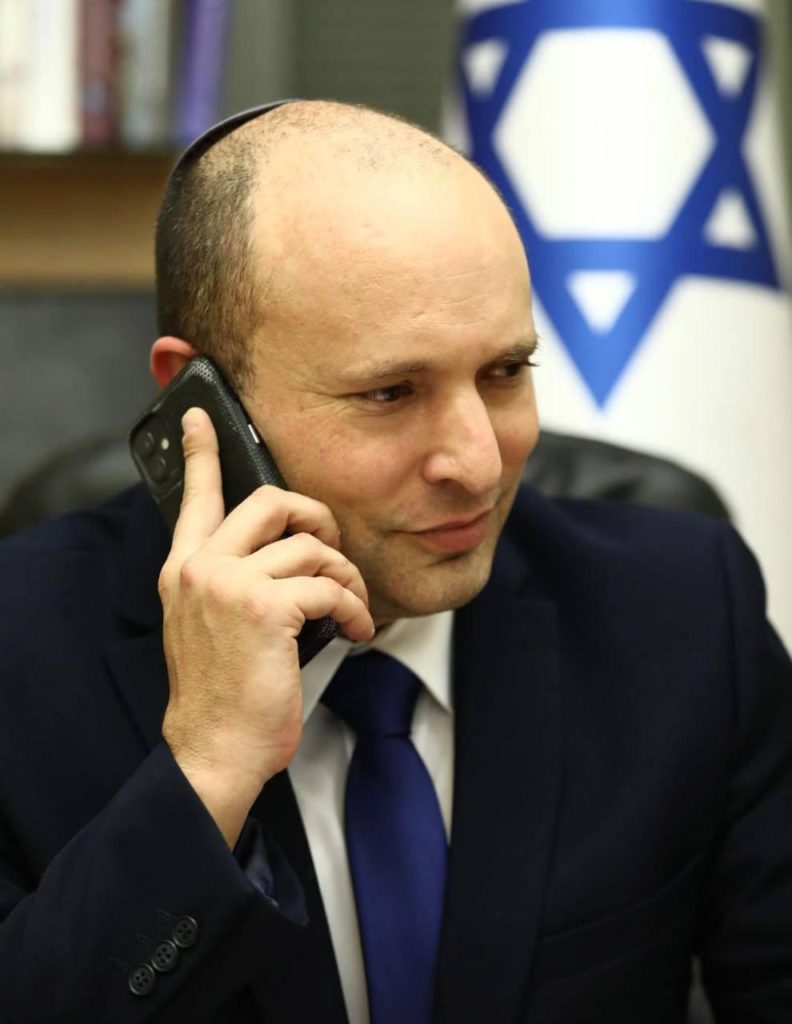
One day before the next round of nuclear talks between Iran and major world powers, Israel isn’t sounding optimistic about the sides reaching a deal—because a deal is what has them concerned. At least, a deal based on what they’ve been hearing so far regarding the “willingness” of key players in the talks.
“Israel is very disturbed by the willingness to lift the sanctions and allow billions to flow into Iran in exchange for insufficient restrictions in the nuclear sphere,” Israeli Prime Minister Benjamin Naftali was quoted by his office as saying on Sunday. “This is a message that we are passing along however we can, to the Americans and to the other countries that are negotiating with Iran.”
Iran, the United States—indirectly—and other major world powers are trying to resurrect the agreement, known as the Joint Comprehensive Plan of Action (JCPOA), that would curb Iran’s nuclear program in exchange for sanctions relief. After months of no negotiations, the sides are set to resume in Vienna on Monday. Ahead of the talks, both Iran and the US are talking tough—but may also be implying a shared goal.
The US last week sounded impatient with Iran’s foot-dragging on the nuclear talks and unwilling to lift sanctions unilaterally as a good faith effort. “We have been very clear that we are not prepared to take unilateral steps solely for the benefit of greasing the wheel, as you said. We are prepared to engage in a mutual return to compliance with the JCPOA,” said US spokesperson Ned Price in comments to reporters last Tuesday published by the State Department.
“…We’ve also been very clear that this is not a process that can go on indefinitely. And if the Iranians, through their actions or through their inactions, demonstrate or suggest that they lack that good faith, that they lack that clarity of purpose, we’ll have to turn to other means.”
Meanwhile, the Fars News Agency reported that Iranian Foreign Minister Hossein Amir Abdollahian made it clear that their aim is to “completely lift the sanctions” against Iran. However, he pointed to complete compliance with the JCPOA as the target for an agreement, which sounds notably similar to the same goal voiced by Price at the US State Department.
Israel has long warned the international community that the original nuclear accord did not effectively close off the path to nuclear weapons for Iran. The United States, under former President Donald Trump, agreed the deal was inadequate, withdrew from the agreement in 2018 and resumed major sanctions on Iran. In response, Iran stopped adhering to the restrictions under the JCPOA and has since even expanded their nuclear program to make significant progress towards military-grade nuclear fuel, all while alleging their program is peaceful.
The US and Israel both have hinted that should the talks with Iran break down, a military option to halt the Iran nuclear threat may still be on the table. In his comments on Tuesday, Price noted that in addition to negotiations, “We have a variety of other means [to address the nuclear program]. We’re discussing those with our allies and partners. In the category of things that aren’t prudent to discuss from here, that’s one of them.”
Meanwhile, Israeli Defense Minister Benny Gantz reminded the world that Iran isn’t just Israel’s problem in an editorial published last week in the Arabic Moroccan newspaper Ahdath Maghrebia.
In an excerpt of his column published by Israel, Gantz wrote, “The State of Israel is particularly concerned by Iran’s regional aggression and its nuclear aspirations. I am taking this opportunity to emphasize the importance for global action against Iran—as it is not just a challenge for Israel. It is first and foremost a global and regional challenge.”
(By Joshua Spurlock, www.themideastupdate.com, November 28, 2021)
